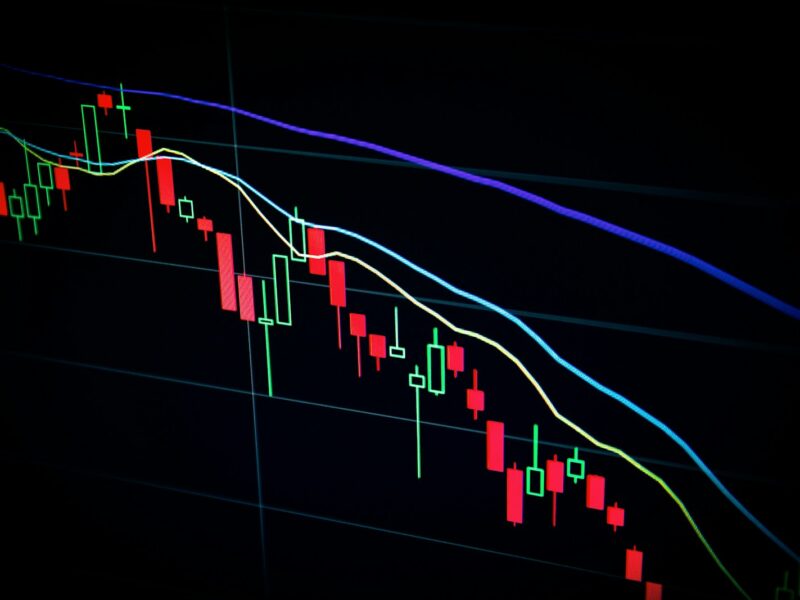You can learn almost anything these days thanks to the internet. There’s even a course for how to become a billionaire besides courses of investment, computing, cooking, art, and self-help skills.
Many people think that investing is a terrific way to build money, and investing classes may provide you with the information you need to get started and prevent costly mistakes. But, with so many self-proclaimed “experts” offering courses, how can you know which ones are worthwhile?
Here’s what to look for in an investing course, as well as what you should know before enrolling.
What are Investing Courses and What Does it Cost?
Investing courses, as the name implies, teach you how to invest wisely and strategically in the market. Investing courses often address the following topics:
- Putting money aside for retirement
- Buying crypto/stocks
- Developing a well-balanced portfolio
- Terminology and fundamental notions
There are a variety of investing courses available, each with its own set of features and price ranges.
Are Investing Courses Worth It?
While you may study on your own utilizing the abundant and freely available material on the internet, a course can consolidate all of the knowledge you need to know in one location, making learning faster and simpler. It can also teach you new things that you didn’t know before. You can google anything, but it won’t help you if you don’t know what to google. To find an investment technique or product, you must first be aware that it exists.
Finally, whether or not an investing course is worthwhile relies on what you can do with the knowledge gained and whether you want to avoid the time and effort of conducting your own research. It all depends on your learning style. Have an open and honest discussion with yourself about what has worked and what has not. Some students require a sense of belonging and accountability. It will be worthwhile if it is what you require and a specific investment course provides it.
But, like with investing, don’t spend money you can’t afford, and double-check that a course is authentic before paying any money. Beginners may find it beneficial to study the fundamentals for free or at a moderate cost before investing in more advanced training.
What to Look for When Choosing an Investing Course
Because charging for online courses and information has become a popular option for many people to generate money, it’s critical to do your research. Here are some things to think about while picking a free or paid investing course:
- Price – Investing classes can cost anything from nothing to thousands of dollars, but it’s vital to go past the sticker price to see whether you’re getting a fair bargain. Because investing earnings aren’t guaranteed, you should never spend more money than you can afford on both investment courses and investments.
- Content – The majority of courses should include an overview of the material presented. Some may even provide a syllabus or a sample lesson to give you a sense of how the instructor will teach. Examine any previews or summaries before purchasing a course to ensure that it covers topics relevant to what you wish to study.
- Reputation and reviews. Examine reviews and customer comments to see if the individual or institution giving the course has a track record of topic competence. Examine the course creator’s professional qualifications, as well as his or her investment experience. While a typical financial planning degree or certification isn’t necessarily required for someone to be informed about investing, it’s always worth investigating where self-proclaimed experts gained their information.
- Keep an eye out for fraudsters. Be skeptical of courses that make great promises of instant gratification or assured profits. Investing is a terrific method to generate money, and online courses can help you master the fundamentals. However, effective investing is a long-term game, and while a well-balanced portfolio may reduce risk while increasing profits, there’s no assurance you’ll profit in the market. If a course makes claims that appear too good to be true, it most often is. Always do your homework before investing in a course or purchasing a financial product.
- A note of caution concerning “free” courses – Some course developers, as well as financial institutions, may provide free courses, webinars, or other materials in order to promote their for-profit goods. Some free courses may simply provide a broad overview, with additional in-depth content being hidden behind a paywall. While free courses may be a terrific way to learn about investing or “taste” a creator’s work, don’t feel obligated to buy a premium course or product simply because you like the free one. Before paying any money, always do your research, shop around, and thoroughly assess what a course or product can provide you.
Conclusion
Each course brings some knowledge from the activity we want to learn. You need to be careful in choosing the courses themselves, many are more expensive than their real value, so you should beware of fraud. After gaining knowledge, you will be able to apply a lot of things by trading on the market. More about crypto trading you can find at cex.io platform for crypto and bitcoin exchange



